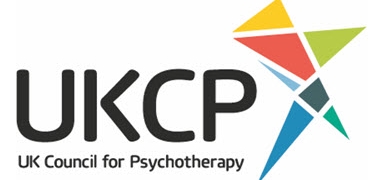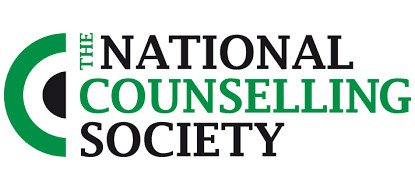About Julieanne Steel
Julieanne Steel
LOCATION: Online
AVAILABILITY: Monday all day, Tues am, Thursday eve, Saturday morning
PRICE: £50-60
SPECIALISMS:
Depression/Anxiety
Relationships
Attachment theory relating to OCD/Hoarding
Executive dysfunction
ADHD
Anxiety
Depression
Trauma
Autism
Training
Julieanne is a qualified Integrative Counsellor and is a registered member of the BACP and Accredited Member of NCS. This means she works from a Person Centred approach integrating other modes of counselling to suit client's bespoke needs.
These include CBT, Gestalt, Psychotherapy, Transactional Analysis, Existentialism, and Mindfulness. She offers brief therapy or longer term depth work for individuals. Julieanne has undertaken vigorous training with The Minster Centre in London and CPCAB and has studied additional therapy frameworks as part of her professional development including Cognitive Behavioural Therapy (CBT). She has worked in both primary care within the NHS, offering time limited, solution focused therapy and in private setting with individuals at home as a professional hoarding practitioner and a team member of Hoarding Disorders UK. She is familiar with working alongside multi-level agencies both in social care and mental health.
Approach
There are many different theories and approaches, each of which has its own underlying philosophy. A broad categorisation is between humanistic and psychoanalytic approaches. Humanistic/Person centred approaches emphasise the integrity and wholeness of each person, working through an exchange of dialogue based on what a person knows about their self. Psychoanalytic approaches put emphasis on the influence of past experiences, especially in the early years of life, in shaping our day to day ways of being; Typically, a humanistic way of working will be more interactive and conversational than a psychoanalytic way of working which tends to be a more silent style. Julieanne draws on a range of approaches, both humanistic and psychoanalytic, carefully blending them into an integrative model of psychotherapy that allows for different ways of responding to each person’s individual needs.
Julieanne offers you a safe space to engage in a caring therapeutic relationship based on trust, enabling a corrective, reparative experience. One where she hopes you will benefit from being fully seen and heard.
Depression/Anxiety
Most of us spend a lot of time thinking about past events, perhaps regretting lost opportunities or feeling resentful or maybe, we project ourselves into the future creating anxiety and “what if” scenarios. Both the past and future are out of our control. At first this may sound unbearable to contemplate. Coming to counselling allows you the opportunity to make peace with your past and gain present moment awareness. This is the art to living in your element and creating freedom from the constant chatter, so that you can begin to see clarity. Julieanne also uses Mind-body techniques for e,g EFT and mindfulness to enhance the mind’s positive impact on the body—and vice versa. The body's second brain lives in our gut, which give us somatic markers via the Vagus nerve and this often manifests in stress related illnesses, alongside anxiety and depression.
Relationships
Healthy, fulfilling relationships are fundamental to our overall sense of well-being, whether that be intimate relationships, friendships, our work-related relationships and the relationship we have with our family of origin.
Relationships enable us to feel a sense of belonging and connection with others. However, often these can be challenging, bringing emotional difficulty and pain. Issues within our relationships such as misunderstanding, resentments, betrayal and shame can lead to feelings of loneliness and depression.
Exploring relationship issues is often about beginning a relationship with oneself. A gentle, and compassionate opportunity to discover who you are, and find rewarding connections with others. Julieanne offers a safe space to be curious about what it means to be aligned with your unique tribe and raise each other up. Julieanne is a single parent, grand-parent, sister, friend, partner and work colleague having had many years of experience weaving the rich tapestry of interpersonal relationships.
Attachment theory relating to OCD/Hoarding
Emotional attachment styles begin in infancy, evolving over time and can create negative patterns of relating to both people and our environment, throughout adulthood. Early trauma, inadequate primary care givers and disruptive home life are some of the factors affecting our our adult attachment styles which can lead to over-compliant and/or avoidant behaviours, increasing the possibility of addictions, dysfunctional relationships and compulsions. Julieanne has worked closely for over a decade with clients experiencing OCD/hoarding and associated addictive tendencies. Julieanne's approach combines a psychodynamic exploration of early childhood with a here and now CBT model to focus on change, and unravel the automatic negative thoughts and ruminations which stand in the way.
Other information
"Wherever you go, there you are" – Jon Kabat Zinn.
Julieanne came to train as an integrative counsellor/psychotherapist as a second career choice to embody her holistic background and form a blended approach to mental wellness.
She has a genuine curiosity when encountering people; some part of you has prompted some questions about inner happiness. Julieanne looks forward to facilitating these parts and supporting you to discover what it feels like to live in your own unique way.
She draws on a number of personal experiences that have influenced her greatly, one being her involvement in self-development; at the age of 21. One of the most influential people she met at that time introduced Julieanne to Acupuncture and Feng Shui which inspired her to pursue training with alternative therapies. Her integrative approach incorporates mind body, soul and space. She believe you can create holistic changes if you make the room for it.







Hoarding disorder and chronic disorganisation affect many adults within the UK, but changing behaviours around this issue can be more challenging than you initially think. Here’s how counselling and therapy can help.